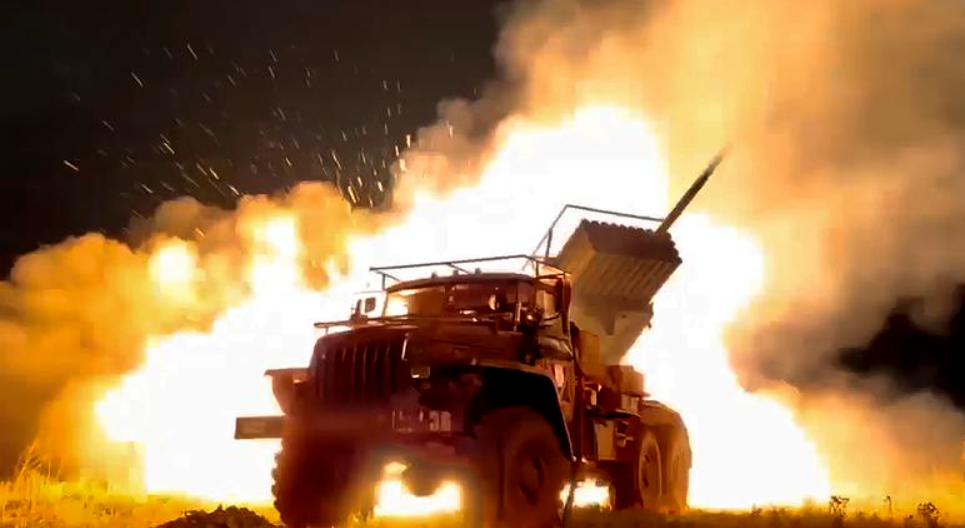On October 8, 2024, the Russian military announced the capture of two additional villages in eastern Ukraine, further escalating the ongoing conflict in the region. This development comes amidst a backdrop of intense fighting and shifting control over territory, raising concerns about the humanitarian impact and the geopolitical implications of the conflict. This blog will explore the recent territorial gains, the broader context of the Ukraine-Russia war, and the potential consequences for the region and beyond.
Background: The Ukraine-Russia Conflict
The conflict between Ukraine and Russia began in 2014, following Russia’s annexation of Crimea and the outbreak of fighting in eastern Ukraine between government forces and Russian-backed separatists. Over the years, the conflict has evolved into a full-scale war, with thousands of lives lost and millions displaced. The struggle for control over territories in eastern Ukraine has been particularly intense, with both sides experiencing periods of gains and losses.
Recent Developments: Capture of Villages
The recent claims by Russia regarding the capture of two villages mark a notable development in the ongoing military operations in eastern Ukraine. While the Russian Ministry of Defense has reported these gains, the Ukrainian government has not confirmed the losses, highlighting the often contentious and disputed nature of territorial control in the region.
- Strategic Significance of the Villages: The villages captured by Russian forces are believed to hold strategic importance in the ongoing conflict. Control over these areas could provide the Russian military with better access to key supply routes and enhance their operational capabilities in the region.
- Increased Military Engagement: The announcement of the captures comes alongside increased military engagement on both sides. Reports of intensified shelling and clashes have been prevalent, contributing to rising casualties and a worsening humanitarian situation.
- Impact on Civilians: The ongoing fighting and territorial shifts have a direct impact on the civilian population. Residents in conflict-affected areas face daily risks to their safety, and the humanitarian crisis continues to deepen, with many displaced from their homes and in need of assistance.
The International Response
The international community has been closely monitoring the situation in Ukraine, with concerns about the potential for further escalation. Western nations, including the United States and members of the European Union, have condemned Russia’s actions and reiterated their support for Ukraine’s sovereignty.
- Sanctions and Diplomatic Pressure: In response to Russia’s military actions, several countries have imposed economic sanctions and diplomatic measures aimed at pressuring Russia to cease its aggressive actions. The effectiveness of these measures in changing Russia’s course remains a topic of debate.
- Military Support for Ukraine: Many Western nations have pledged military support to Ukraine, providing weapons, training, and logistical assistance. This support aims to bolster Ukraine’s defensive capabilities and deter further Russian advances.
- Calls for Ceasefire: Humanitarian organizations and various governments have called for an immediate ceasefire to allow for the delivery of aid and to protect civilians caught in the crossfire. However, the prospects for a lasting ceasefire remain uncertain, given the entrenched positions of both sides.
Geopolitical Implications
The ongoing conflict in Ukraine has significant geopolitical implications, not only for the region but for global stability as well. The capture of villages and the potential for further escalation could have several consequences: 
- Regional Security Concerns: The conflict has raised concerns among neighboring countries, particularly those in Eastern Europe, about the potential for Russian aggression to spill over into their territories. Countries such as Poland and the Baltic states have expressed heightened vigilance and a commitment to strengthening their own defense measures.
- NATO’s Response: The North Atlantic Treaty Organization (NATO) has reaffirmed its commitment to collective defense, with member states closely monitoring the situation in Ukraine. The alliance’s response to Russia’s actions will be critical in shaping the security landscape in Europe.
- Energy Security: The conflict has also impacted global energy markets, with Europe facing challenges in securing energy supplies amidst tensions with Russia. The ongoing war and the potential for disruptions in energy supplies could have far-reaching economic consequences.
Humanitarian Impact
The humanitarian situation in Ukraine continues to deteriorate, with millions affected by the ongoing conflict. The capture of villages and the escalation of fighting exacerbate the challenges faced by civilians, including:
- Displacement and Refugees: The conflict has led to mass displacement, with millions of Ukrainians forced to flee their homes in search of safety. Many are living in temporary accommodations or seeking refuge in neighboring countries, putting immense pressure on local resources.
- Access to Basic Services: Ongoing hostilities disrupt access to essential services such as healthcare, education, and clean water. Humanitarian organizations are working tirelessly to provide assistance, but the security situation complicates their efforts.
- Psychosocial Impact: The psychological toll of the conflict on civilians, particularly children, is significant. The trauma of living in a war zone can have long-lasting effects on mental health and well-being.
Conclusion
The announcement of Russia’s capture of two more villages in eastern Ukraine underscores the ongoing volatility of the conflict and the challenges faced by the international community in addressing the situation. As military operations intensify and the humanitarian crisis deepens, the need for a comprehensive and sustained response becomes increasingly urgent.
The path to peace and stability in Ukraine will require a multifaceted approach, including diplomatic efforts, humanitarian assistance, and a commitment to upholding the principles of sovereignty and territorial integrity. The international community must remain vigilant and proactive in supporting Ukraine and addressing the broader implications of the conflict for regional and global security. ALSO READ:-Stocks Snap Six-Day Stumbling Streak: Sensex and Nifty Surge 2024